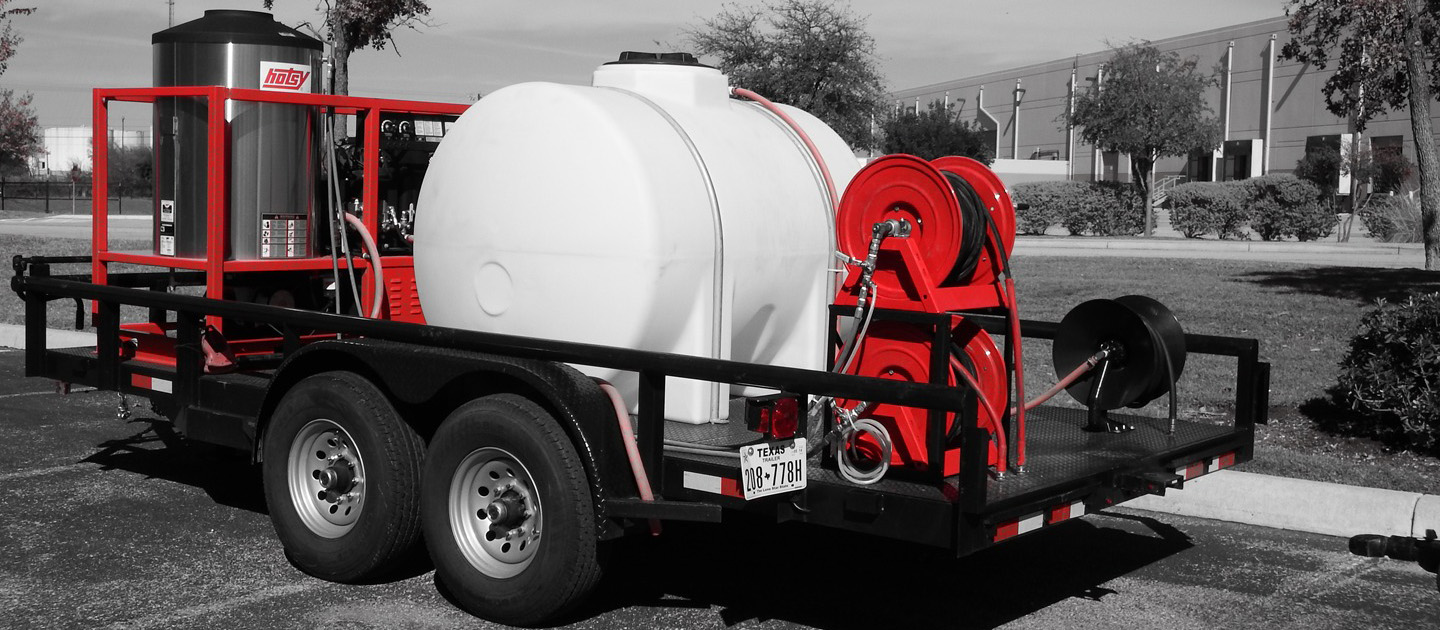
If you’re just getting into the power washing business, you may be wondering whether your setup—especially if it includes a trailer, water tank, or pressure washing rig—requires a commercial driver’s license (CDL) or any other special permits to operate legally.
The good news? In most cases, you don’t need a CDL to run a power washing rig. But there are important exceptions and legal details that every new business owner should understand. This article will break it down clearly, so you stay compliant and confident behind the wheel. 🧽🛻
🛻 What Is a CDL, and When Is It Required?
A Commercial Driver’s License (CDL) is a special license issued by the DMV that allows you to legally operate larger or heavier commercial vehicles. CDLs are typically required if you:
- Drive vehicles over 26,001 pounds combined weight (GVWR)
- Transport hazardous materials
- Carry passengers (like a shuttle or school bus)
There are three classes of CDLs:
- Class A: Combination vehicles over 26,001 lbs (like semi-trucks or big trailers)
- Class B: Single vehicles over 26,001 lbs
- Class C: Vehicles carrying passengers or hazardous materials
In the power washing world, unless you’re hauling massive tanks or heavy-duty trucks, a CDL usually isn’t required. But let’s dive deeper into the specifics.
⚖️ What Is GVWR and Why It Matters
GVWR stands for Gross Vehicle Weight Rating, which is the maximum weight a vehicle is rated to safely carry—including the vehicle itself, equipment, water, fuel, and passengers.
The magic number to remember is:
26,001 pounds
If your combined vehicle and trailer weigh less than that, you likely don’t need a CDL.
Here’s a simple breakdown:
| Setup | CDL Needed? |
|---|---|
| Pickup truck + small trailer + 200-gallon tank | ❌ No CDL |
| Box truck with mounted skid unit | ❌ No CDL |
| Heavy-duty truck + trailer + 600-gallon tank (fully loaded) | ⚠️ Maybe |
| Truck and trailer combo over 26,001 lbs | ✅ CDL likely required |
🧠 Pro Tip: Always check the manufacturer’s label on your vehicle and trailer to verify the GVWR and GAWR.
Browse Amazon Here For Power Washing Rig Setups
💧 How Water Tanks Affect Your Weight
Water is heavy—8.34 lbs per gallon, to be exact.
- A 200-gallon tank = ~1,668 lbs
- A 525-gallon tank = ~4,378 lbs
- A 1,000-gallon tank = ~8,340 lbs
Many beginners forget to factor in water weight when calculating the total load. If your trailer carries both water and equipment (hoses, reels, generators), the combined weight can quickly creep up.
🔍 Do You Need Any Special License or Endorsement?
Even if you don’t need a CDL, you may still need a special license or endorsement depending on your:
- Trailer weight
- State regulations
- Local city or county commercial vehicle laws
Here are a few examples:
- In California, towing a trailer over 10,000 lbs may require a Class A Non-Commercial license
- In Texas, no special license is required unless you exceed CDL thresholds
- In New York, commercial trailers may require a different registration classification
🧾 Check your state DMV website or call directly to ask about towing laws and commercial vehicle classifications.
🚨 Don’t Forget About DOT Numbers and Commercial Vehicle Registration
If your business crosses state lines for work or your setup is considered interstate commerce, you might be required to:
- Get a DOT Number from the Federal Motor Carrier Safety Administration (FMCSA)
- Register your vehicle as commercial with your local DMV
- Add commercial insurance, even if you’re not required to get a CDL
Even within your own state, registering your power washing vehicle as commercial may be necessary if you’re branding it or using it solely for business.
🔐 Insurance Implications
Most personal auto insurance policies won’t cover accidents that happen while conducting business with your vehicle.
If you’re operating a trailer-mounted power washing rig, you’ll likely need:
- Commercial auto insurance
- Trailer insurance
- General liability insurance (to cover customer property damage)
⚠️ Driving uninsured or underinsured while using your vehicle for business could void your coverage in an accident.
🧽 What Most Power Washers Are Actually Using
Here’s what the average solo or small team power washing business is using:
- ½-ton or ¾-ton pickup truck (F-150, Silverado 1500, Ram 2500)
- Small utility trailer (5×10 or 6×12)
- Water tank of 200–525 gallons
- Skid mount or wheeled pressure washer
These setups generally stay well under the 26,001 lb limit, meaning no CDL is required in most situations.
✅ Best Practices to Stay Legal and Safe
Even without a CDL, follow these guidelines:
- Know your vehicle and trailer GVWR
- Don’t exceed your truck’s towing capacity
- Always distribute weight evenly on your trailer
- Use working trailer brakes if your state requires it
- Keep a fire extinguisher and safety kit on board
- Carry proof of commercial insurance and a business license if applicable
Being proactive with legal and safety compliance keeps you protected and professional. 🧯📋
🛑 What Happens If You Get It Wrong?
If you’re caught hauling a trailer that exceeds weight limits without a CDL, you could face:
- Fines ranging from $500 to $5,000+
- Impoundment of your vehicle
- Points on your license
- Invalidated insurance coverage
- Civil liability if an accident occurs
And that’s before considering DOT or state-level consequences.
🔚 Final Thoughts
In most cases, power washing professionals do not need a CDL—but that doesn’t mean there aren’t important rules to follow.
Know your weights, understand your local laws, get the right insurance, and stay on top of DMV regulations.
That way, you can drive with confidence, avoid legal trouble, and keep your power washing business running smoothly on the road and on the job. 🛻🧼💼






